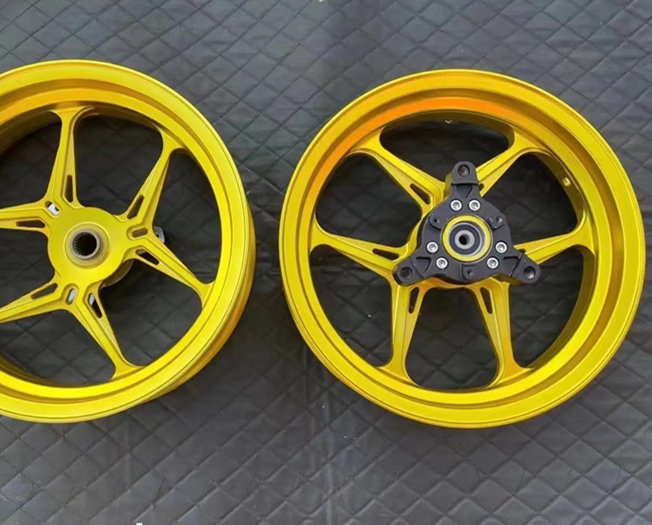Falcon’s 5-axis CNC technology delivers ±0.005mm precision for motorcycle alloy wheels and automotive performance rims. With IATF 16949 certification and PPAP compliance, we support both custom prototypes (5-day turnaround) and high-volume batches (50,000+ units). Our forged 6061-T6 aluminum wheels reduce weight by 30% while maintaining structural integrity—perfect for racing and off-road applications. Trust our real-time quality monitoring and automated tool changers to meet your tightest deadlines.

Whether you need custom motorcycle wheels with intricate spoke designs or high-volume orders for industrial machinery, Falcon’s flexible production lines adapt seamlessly. Leverage our 72-hour rapid turnaround—backed by automated tool changers and ISO 9001-certified quality control—to meet Just-In-Time delivery demands.
From forged 6061-T6 aluminum for lightweight racing wheels to stainless steel rims for heavy-duty trucks, Falcon offers 100+ material options. As one of the few suppliers with IATF 16949 automotive certification, we ensure full PPAP compliance for Tesla, Harley-Davidson, and other industry leaders.
Need a custom wheel design with hidden valve stems or reinforced bead seats? Our engineers use CAD/CAM simulations to optimize structural integrity and aesthetics, delivering prototypes in 5 days and full production within 2 weeks—ideal for aftermarket upgrades or OEM replacements.
Cnc wheel machining refers to the precision processes, often involving CNC (Computer Numerical Control) machines, used to shape and finish wheels for various applications. This can include alloy wheel machining, compressor wheel machining, motorcycle wheel machining, steel rims, or other wheel types.
Machined rims are wheels that have undergone machining processes to achieve specific designs, surface finishes, and dimensional precision. CNC machining is commonly used to create intricate patterns, cutouts, and other features on the rims.
A CNC machine for wheels is a specialized machining tool equipped with Computer Numerical Control technology. Custom wheel machining precisely shapes and finishes wheels by interpreting digital design specifications, ensuring accuracy and repeatability in the production process.
Wheels typically involves casting or forging the initial shape from materials like aluminum or steel. After the casting or forging process, wheels undergo machining processes such as milling, turning, or drilling to achieve the final design, tolerances, and surface finishes. CNC machines are commonly used for these machining operations, ensuring high precision and efficiency.

Call
Address
#41 Jinlei Industrial Zone, Xiaotang Road, Youganpu, Fenggang, Dongguan